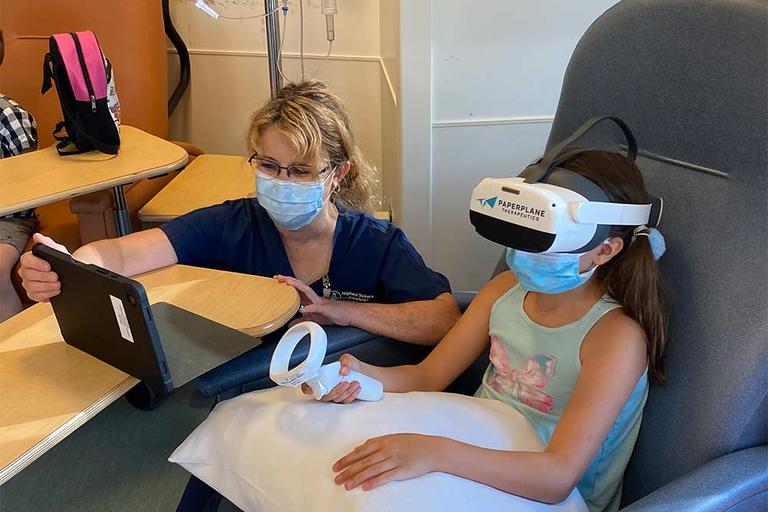Health & Biotech
Toronto Clinic Uses VR to Reduce Pain in Pediatric Patients
A downtown health centre is using virtual reality headsets to distract young patients during procedures, dramatically lowering reported pain levels.
June 30, 2025 at 10:02 – By Anika Deshmukh

Toronto’s public health officials have launched a new campaign to address the rising concern of heat-related illnesses as climate patterns shift. The campaign includes pop-up cooling centers, hydration stations in key transit areas, and awareness efforts targeting vulnerable populations like seniors and outdoor workers. Public response has been strong, with community centers reporting record foot traffic on high-temperature days.
At the heart of the campaign is a mobile app that provides real-time updates on heat index levels and suggests nearby shaded rest zones or AC-equipped shelters. The app also features hydration tips and a crowdsourced map where users can report overheated infrastructure such as malfunctioning escalators or train cars without ventilation.
The city’s emergency services have also trained more than 1,000 personnel in heat exhaustion protocols. According to EMS spokesperson Andre Melnik, the number of heatstroke-related emergency calls during the past three summers has more than doubled. The initiative aims to reduce preventable hospitalizations by up to 40% over the next two years.
Local businesses have joined the effort by offering 'cool zones'—designated spots inside shops where individuals can rest and access free water. Participating businesses display a sticker on their windows and have been reimbursed by a municipal grant aimed at enhancing urban climate resilience.
Meanwhile, Toronto’s urban forestry team is planting over 10,000 new trees in low-canopy neighborhoods to provide long-term shade. These include heat-resistant native species chosen specifically for their ability to thrive under urban stressors like pollution and compacted soil.
Advocacy groups have praised the city’s multifaceted approach, noting that climate adaptation often lags behind infrastructure development. Toronto’s model is now being studied by municipal governments in Vancouver and Chicago, which face similar urban heat challenges.
With climate projections indicating that Toronto will experience more frequent and intense heatwaves, public health leaders emphasize the importance of long-term planning. The city’s heat response campaign, they say, is just one step toward creating a more climate-resilient future for all residents.